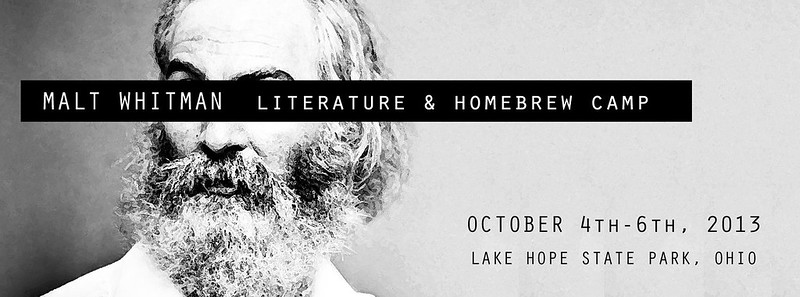For a limited time (30 September–9 October 2013) Vdrome is hosting: Matt Wolf’s short documentary “I Remember: A Film About Joe Brainard” CHECK IT OUT!!!
Prominent Automobiles in Bushwick Brooklyn
MERCEDES S SERIES COUPE 2012
I SEE THIS SHIT ON BUSHWICK AVE; NOTICE THE V12(?) ENGINE DECAL AND HOW FUCKING SMOOTH IT HOVERS AT THE CURB BELOW THE OLD GREYSTONES NEAR MYRTLE. IS IT A DRUG THING OR JUST A BAVARIAN STEEL LOVER, WHO WENT ALL IN? WHO KNOWS? WHO CARES? – IT’S A HEAVY PUSHED-OUT RIDE. YOU IMAGINE THE STREETLIGHTS BOUNCING OFF THE BUBBLE GLASS EVEN WHEN IT’S STANDING STILL.

CHRYSLER 300 2006-2014 (Above)
EVERY DAMN MODEL YEAR THIS ONE GETS MORE LEGIT. PEOPLE LOVE THIS CAR FOR IT’S BULK, I GUESS. THE WHOLE THING LOOKS HEAVY, SERIOUS, AND A LITTLE BIT BAT MOBILE. YOU SEE EM WITH THE MATTE BLACK RIMS. YOU SEE EM WITH THE AFTERMARKET BENTLY GRILL. THEY ROLL REAL SLOW AND PARK REAL NICE. JOHN VARVATOS EDITION WHO? I GUESS PEOPLE ROLL THROUGH IN THE DODGE VERSION OF THIS, THE CHARGER, BUT IT’S NOT REALLY MY PREFERENCE AND SEEMS WAY WAY LESS EMPIRE STATE OF MIND.
Our Prime Vibratory Antennae: A Conversation with Will Alexander
 Will Alexander is a visionary and ecstatic writer whose most recent book is Singing in Magnetic Hoofbeat: Essays, Prose Texts, Interviews and a Lecture, published by Essay Press. Other recent books include Kaleidoscopic Omniscience, Mirach Speaks to His Grammatical Transparents, Inside the Earthquake Palace and Compression & Purity.
Will Alexander is a visionary and ecstatic writer whose most recent book is Singing in Magnetic Hoofbeat: Essays, Prose Texts, Interviews and a Lecture, published by Essay Press. Other recent books include Kaleidoscopic Omniscience, Mirach Speaks to His Grammatical Transparents, Inside the Earthquake Palace and Compression & Purity.
Alexander writes in “Spirit and Practice,” an essay from Singing in Magnetic Hoofbeat, “Being menaced by consciousness, the poet finds that the magnetic inscription of words on the page is only part of a continuum. One’s every movement, one’s every despair, is empowered by a wild illuminant rush which burns at the base of one’s character. This is the praxis of spiritus, the praxis of breath, in the simultaneous realms of the diurnal and the oneiric. This constant awareness seems always empowered by a surreptitious sun emitting its power through the aural canals. And the raw material of life is always transmuted by these aural rays. And because of the fire at this sensitive level, one is continuously placed in temperamental combat against the quotidian carnivore, against its reflexive muscle of fact.”
Alexander’s prolific body of work radiates radiance and exemplifies a type of luminosity that seems extremely rare in this world. His verbal flights soar far above the quotidian to a place of vision. Alexander’s use of language is alchemical and talismanic, relating to mental travel through the expansion of awareness and the unfolding of alternate modes of perception. I’d like to thank Will Alexander for providing a way to see, a way to facilitate the envelopment of energy, and for engaging me in this discussion.
***
Chris Moran: Your writing often takes me to remote sectors of the psyche where the language of poetry is not the exception but the primary ruling principle. This has something to do with your expansive vocabulary, which often incorporates the language of astronomy, geology, mathematics, alchemy, botany, mythology, geography, and many other fields. Your use of language goes far beyond the ‘neuro-linguistic programming’ that can stifle the imagination. It feels akin to scrying, and I sense there is something deeply alchemical going on. How is this lens of perception attained, where poetry is indistinguishable from philosophy? Also, do you see language as divinatory?
Will Alexander: When language is felt as a living intelligence it quickens as one internally develops. One can feel its spontaneity like a drone in one’s system. For me, it magnetizes itself to different genres, and to various branches of knowledge. All knowledge springs from the 26 letters of the alphabet, being a poet I am naturally magnetized to its spectrum. Being free, I can range across its field of expression, which includes medicine, astronomy, botany, history, music, cinema, mysticism, architecture. It’s an infinite and evolving list. I’m picking up murmurs all the time. In this sense as I write language takes on an alchemic personality, like an Amazonian flooding replete with the ferocity and power of aboriginal presence. A power yes, but not unlike the mathematics which the old Kemetians used in constructing the pyramids. A living word is not unlike a living number creating a pulsing construct, be it a piece of writing or a pyramid. In this sense creative language is not adverse to philosophical utterance of the vatic.
CM: It’s not unusual to come across words in your poems that I’m unfamiliar with, and many of your books feature a glossary. What you do reminds me of Hart Crane’s dictum to “create new words, never before spoken and impossible to actually enunciate.” This goes far beyond the saturation of elemental forces, as it incorporates planetary and cosmic energy. Where does this knowledge come from? Is it necessary to access alternate modes of perception in order for poetry to process knowledge, or for a poet to embody knowledge? How do you attain this multidimensional framework?

WA: I’ve been engaged in a praxis sustained across duration. I’ll call it in this context poetic yoga. I remain in poetic trance day and night. It is a living world. As I stated earlier the poetic is always murmuring to such an extent that I feel its palpable presence within me. It is a presence which was first introduced to me when I learned about circular breathing. When one can breathe through one’s medium to such a degree that quotidian distraction can gain no entry. One then embodies whatever one is writing on to such a degree that the specific nature of the subject at hand ignites from the root being engaged by the imagination takes on the tenor of the unexpected. The unexpected charged with magnetism which naturally attracts energies from what the Occidental mind calls the invisible. And it is by means of this invisibility that one can intermingle knowledges and poetically contact new lingual dimensions which ignite new synapse firings in the cortex, which can’t be predicted in an a-priori manner since organic creation carries spontaneous warmth as its resonance and by its very nature cannot be chronicled as one would abstractly add or transpose a superimposed structure replete with in-built boundary.
Thomas Lux’s Child Made of Sand
 Child Made of Sand
Child Made of Sand
by Thomas Lux
Houghton Mifflin Harcourt, 2012
80 pages / $23 Buy from Amazon
Does anyone read Thomas Lux anymore? I tweeted this question and no one really answered me. In my teens and twenties I associated Thomas Lux with poetry royalty, standing abreast with the likes of Tate and Ashbery. But now? I don’t know. When I regularly read Lux I was getting ______ all the time and reading One Hundred Years of Solitude and doing backstrokes in David Lynch. So when Lux’s new book of poems, Child Made of Sand (a title I love by the way), came out I sort of just shrugged. But that seemed rude and dismissive, so I decided to take a look at it and I found exactly what Lux has been known for all these years: witty, learned, half-surreal poems. Which is fine. It’s fine if Bill Clinton was still president and the most pressing political issue facing us was a blue dress. But now we live in a time of endless war, economic injustice, a polarized media, the mind-F that is the Internet, never mind scores of DIY parents with advanced degrees not vaccinating their children. Somehow, Lux’s neighborly tone is sort of mesmerizingly off-putting, especially since as I write this the Syrian government is bombing its own citizens with chemical weapons:
You do: one side rolls left,
the other right, and both
show you the chambers
of their split hearts, their slippery liquids,
and seeds,
which you take, eat,
because of their abundance.
Across a small pond
a boy squats by the edge
stirring the water with his hand.
His father’s five strides behind,
too far to stop him if he topples face-first.
The water is black but shallow.(from “From Whom All Blessings Flow”)
It certainly is, Mr. Lux, it certainly is. This pleasant free-verse is as harmless as Seth Abramson, but equally annoying, and seems out of step with the rest of us. Many aging poets, once someone confirms their place in the pantheon of contemporary American poetry, seem to have earned the right to write mediocre verse without any accountability. Recently, I came across a poem by Linda Pastan called “3AM” in the Gettysburg Review (Winter 2012) that shocked me for its banality and I can’t imagine why the editors published it except out of some obligatory gratitude for years of service. Who hasn’t in high school written a poem titled “3AM”? What’s interesting is that this sort of poetry wasn’t offensive at some point precisely because it reflects great prosperity and privilege. Coming across the Pastan poem as the world here and abroad comes apart at the seams is unnerving. Lux, and other poets sympathetic to this sort of suburban disposition (disclaimer: live in suburbs/own Crocs), would rightly argue that the world is always in turmoil. When is it not? And I agree. But the way we apprehend that turmoil has changed and changed dramatically. Besides, as globalization and the relentless whiplashes of information rearrange us, these poets are entering the twilight of their careers. And yet perhaps they have contributed enough? Perhaps they should be allowed to frolic peacefully in the shade of an oak tree and scribble in paper. In short, respect your elders. But perhaps, just perhaps critics should hold these AARP poets even more accountable than younger poets. The premise that the older you get, the less impact you have is a false one. Take a look at the Senate. According to Slate.com the average age of a Senator is 62. And that was in 2011. So, instead of hiding older poets like heirlooms, tug them back into the light of this world.
September 30th, 2013 / 11:00 am
Maverick Jetpants in the City of Quality by Bill Peters
 Maverick Jetpants in the City of Quality
Maverick Jetpants in the City of Quality
by Bill Peters
Black Balloon Publishing, October 2012
280 pages / $14 Buy from Amazon or Indiebound
Rebecca Solnit identified two disparate meanings of the word “lost” in her book A Field Guide to Getting Lost: “Losing things is about the familiar falling away, getting lost is about the unfamiliar appearing.” Bill Peters’ first novel, Maverick Jetpants in the City of Quality, does a tremendous job of exploring these two meanings with characters who think and speak with an idiomatic style made up of in-jokes (“Colonel Hellstache,” “Pinning Bow Ties on the Dead,” “Jaeger Cowpunch”) shared between characters that, over the course of the book, competes with the generic language of the Real World.
Peters’ characters ably resist the realities of adult life (until they can’t) and its pre-existing modes of expression, which one character claims have been “made stale or co-opted into oblivion by government agencies,” forcing man to be “incarcerated by his own linguistic detritus.” This helps to explain why, at an earlier point in the novel, that same character makes the following pronouncement: “Your dad was a gelding and your mother was a whale, and they gave birth to a suitcase with a flesh mask inside.”
The arc of Maverick Jetpants’ story will be familiar to readers of contemporary coming-of-age novels: Nate, the book’s narrator, chronicles the unraveling of his best friendship with Necro, an artist caught up in a “business opportunity venture” for “capital – you know – expenditure or whatever” with a dangerous group of neo-Nazis; the differences between his oddball stepdad (Fake Dad No. 3) and biological father (Real Dad); the banal thrill of cruising through a place (Rochester, New York, 1999) you simultaneously curse and celebrate; and the demands and dialect of adulthood.
Peters’ singular style is so good, though, his character’s sentence-shapes and sounds so far from bored or boring, that plot summary seems somewhat beside the point. Nate suffers from what you could call VDD (Vocational Deficit Disorder), and Peters’ voice sometimes resembles what Joshua Cohen recently referred to as E.S.L.: “Ennui as a Second Language, or Emulating Sam Lipsyte, a style that entertains through mortification, and mortifies through . . . you get it.” Even directionally challenged characters with bit parts have voices that want to sing on the page. A character introduced near the end of the book has the following first words: “So let’s go get that drink already […] Pitcher of Get-the-Hell-Outta-Here-Juice.”
As the novel progresses the constituent parts of Nate’s narration mutate from fast-and-furious slang to more serious units of straight-talk. Compare, for example, the following two passages. The first is from a scene early in the book, immediately after an explosion that has injured Nate and Necro’s friend Wicked College John; the second from a scene late in the book, involving their friend Toby:
“Because, I come out here and try to talk to Necro about a Plan. And, now? Necro knee-slides on the pavement to perform CPR on Wicked College John? Like he’s trying to be Tadahito Murakami: Ninja Surgeon and save the world?”
—
“Since I’m calling this evening over, I twirl my keys around my index finger. But suddenly I feel a scrape on my knuckle and my keys are gone, because Toby just yanked my key ring off my finger, hooked the girl’s body with one arm, and opened the driver’s side rear door and slammed it shut. He slaps down all the locks on the windowsills and immediately grabs the girl by her hair and facebombs her on the lips. I hear her gag and try to say something, and Toby’s suctioning her whole face practically, and something creaks in the car, and a handprint smears on the window, and I see Toby’s fist under the back of her shirt, and the girl’s hair mats up against the glass, and Toby almost rolls into the seat well, and the car shakes when he palms the floor….”
September 30th, 2013 / 11:00 am
Malt Whitman 2013

The Malt Whitman literature, beer, and camping festival is happening this weekend in Southeast Ohio. More info — including schedule, directions, and contact info — here.
Felix Bernstein’s Response to Vanessa Place, Slavoj Žižek, Trisha Low, and more
Beyond Vampires and Zombies
An Essay by Felix Bernstein
Vanessa Place’s latest manifesto “Zombie Poetry”[1] accurately frames her modus operandi: to glorify (and sanitize) Freud’s death drive (in which, doomed to never get what you want, satisfactory pleasure becomes impossible), over and against eros (the principle of maximizing pleasure). She provides a didactic demonstration of the death drive by casting herself in the role of Thanatos, a self-proclaimed undead zombie, feeding off (appropriating) the naïve pleasure of those feebleminded creatures who attempt to maximize pleasure, lecturing us that our notion of satisfaction and of mastery is a lie. Place is largely influenced by the famous schtick of Lacanian philosopher Slavoj Zizek, who is a master of belittling the part of us that believes we will find fulfilling objects. His refrain, like the song, is you can’t get what you want but you can get what you need, with this kicker: what you need is an unpleasant excess in the object of your desire that serves as a reminder/remainder of that which is denied in sexual relationships. This unpleasant excess, so-named “the kernel of the real,” can be found as the remainder of fantasies and mathematical equations To extract this rem(a)inder, you must read between the lines of speech, strictly under the Lacanian rubric. Then you will always find this same truth: the split subject, barred from accessing its full desire; in other words, the truth is the failure of desire. And this truth will always be delivered, for it is universally applicable.
For Place, those ‘poets’ who have not taken the conceptual turn that she prescribes, are in the thrall of a silly fantasy that our words might matter before they are decoded, analyzed, or appropriated by a master-analyst. [2]. This is her charge against those poets who have not sufficiently removed themselves from the craft of voicing desire. But also, more troubling, the voices that Place appropriates (the dumb college jokes, the early feminist dogmas, the victim’s testimony) all are framed as being (in their original utterances) naively unaware of the critical discourse into which she is happy to drag them. Those who take on the ‘voices of others,’ be they infused by the traditions of Language or Flarf or New York School poetics [or romanticism or camp or punk] will for Place indulge in an ideological fantasy that does not properly recognize or critique itself. But we all indulge a bit now and then, don’t we? And so it is only human (in the ‘living breathing’ sense) that now, in “Zombie Poetry” when the prospect of Place herself losing relevance enters the scene, that she can finally ask us to be concerned about the personal, the tragic, and the autobiographical, at the expense of the comic and universal. Now, she begs, we ought to look at her particular case, her particular deadpan style, her “I’m melting” bathos, and feel for her! That is, we ought to feel for the woman who is unfeeling.
Indeed, those who do feel for Place now, those who do still recognize her as a mother to their art, but refuse to follow her dogmatically, even those followers, she ridicules for being stupid enough to ‘pay her’ to fulfill this role. By her own calculations, it is inconsequential whether or not one ‘likes’ Vanessa Place, for ‘liking’ is merely a dumb, naïve, response, suitable for social media. It only matters whether or not one is driven to her. And she will, indeed, find that many will be driven her way. And driven by a death drive that is, unlike the one late Freud describes, vaguely pleasant. That is because it is nothing other than a performance of death drive, in the skilled manner of Place or Zizek, it is intelligible, hip, ironic, and stripped of any great dangers. It is in fact more optimistic, gung-ho, communal, and ego-affirming than those arts that indulge openly in true eros. It does not threaten civilization or even make us better understand its discontents. Rather, such performance of thanatos smoothly valorizes what might otherwise have been disruptive, if it were rendered with aesthetic brilliance instead of uncompromising didactic un-deadness.
The vampiric persona has long been iconic of positive, sympathetic, communal identification with the death drive. This identification goes beyond “Garbo is the best” because it is also ” “Garbo’s coldness is our coldness.” Even when nakedly announced in Freudian terms, the death drive is often used as communally binding tool; for example, Lee Edelman’s No Future: Queer Theory and the Death Drive, a revered book in the literary academy (not to mention in the cults around Freud, Zizek, and Lacan). The art world and the pop world, epitomized by Warhol or Lady Gaga, respectively, has found numerous ways to cash in on such glamorous thanatos; but too often the result is art that has zero stakes in its self-conscious display of determinately empty signifiers. Such vampiric signifying feeds on the flesh of signifiers, styles, and dialects that remains alive for those “others” from whom they are appropriated. The vampire thrives via the necrotizing of living symbols for the purpose of galvanizing cash and social mobility. This is why Claire Bishop can praise ‘dark, critical, negativity’ in art (and find Conceptual Poetry to be perfectly negative), all the while, attempting unabashedly to usher these ‘negative’ new forms of art in to the halls of high commodities, with her critical stamp of approval writ large. Of course, such ‘negativity,’ as Zizek or Place or Gaga or Warhol offers, is only as ‘negative’ as it is completely intelligible to art audiences, and it will be forever intelligible because it has no ambivalence about using the signifier, ruthlessly, to prove its point (which is, after all, nothing more than to show that the empty signifier trumps what is conservatively viewed to be an authentic display of desire). But maybe the simplest example to look to, for now, is Twilight, where young Bella, ambivalent about how to register affect, ends up choosing the learned, urbane, death drive of the vampires over and against the dumb, rural, pleasure principle of the werewolves. Which one would you pick? It must be hard being a young post-feminist!
Memento Mori

Before the entitled enthusiasm of Yolo, there was Memento mori, of essentially the same message, as conveyed by endless still lives centered around the human skull. “Remember that you will die,” in contrast to “you only live once,” is grim not because of death, but that — like children with brushing teeth, or a guy on his anniversary — we must constantly be reminded of it. Had the makers of Memento (2000) known about Instagram, its screenplay might have worked differently, with our more efficient protagonist streamlining his way through the narrative. Instagram supplements its photos with immediate nostalgia, as if we — in our frantic only living once — could no longer wait for an event to age naturally. We wanted quick memories of moments which seemed like they deserved to outlast time. On April 12, 2012, Facebook bought Instagram for $1 billion dollars, and later that year, changed its copyright section in the Terms of Service such that any user content could be sold to third parties without notification or compensation. This would not be a problem, as users would be flattered, floored even, to find their trite moments corporately noticed. Call it inverse stock photography. Leonard Shelby (Guy Pierce) suffers from anterograde amnesia, chasing suspect signs and symbols, stuck in the purgatory of self-deception. The inability to produce new memories is far more tragic than the more common retrograde amnesia, in which one loses their past but may produce a new one starting at the point of their affliction. It is, in a way, being born again. In 1972, Polaroid introduced “instant film,” what became subsequently known by the company’s name. The immediacy of a memory, as commemoration of a transient life, may be archaic after all. The polaroid’s faded light and approximate shadows were less of an aesthetic than merely technological constraints at the time. As the inferior image slowly surfaced from the depths of that lush creamy void, the exhilarated holder would compulsively shake the photograph at every moment of its development, as if to summon more memories.
[This post’s incipient idea is indebted in large part to this tweet.]
Sunday Service: Aaron Novy poem
My friend is 71
I’ve been working in the hotel painting
I don’t get paid
With paper and shit like that
It’s just me and a friend painting
My friend talks about dying everyday
All the time
He has a plan when he’ll do it
He doesn’t want to deal with court or rent or brain surgery or immobility
He bought and sold motels
Lost money in pyramid schemes
After work we smoke cigarettes and talk
He says he wants to drink my cum so he can take my DNA with him
My friend is 71
All this is a lie except the cum drinking DNA part
Aaron Benjamin Novy is 27 years old. He has attended five different colleges for journalism and never graduated from one. He has spent the last two years driving around the United States in his van selling paintings and meeting different characters. He currently lives in Christmas Valley, Oregon, a desert community of about 400 people, where he spends his days writing, painting, drinking, smoking and attempting to build a house of used rubber tires and found wood. Here is his Tumblr.

